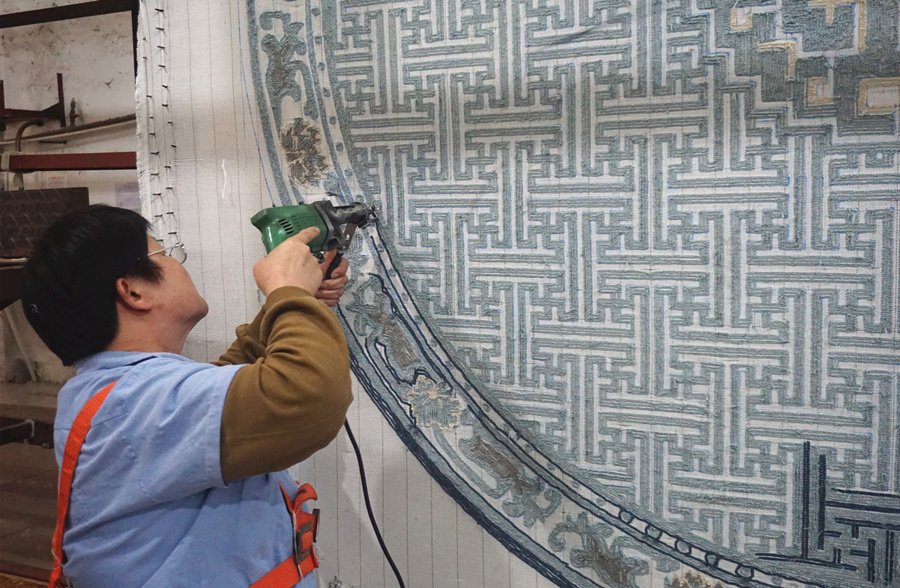
A worker weaves a carpet using a tufting gun. [Photo by Bi Nan/chinadaily.com.cn]
Once a traditional rural craft, the handwoven carpet weaving technique of Yangxin county in Binzhou city, Shandong province, is experiencing a vibrant revival. Blending cultural heritage with modern innovation, the craft has been revitalized through dedicated preservation efforts and has become a symbol of both artistic tradition and rural revitalization.
Known for its intricate process that mixes painting, carving, weaving, embroidery and dyeing, the Yangxin handmade carpet weaving technique involves three major stages: preparation, weaving and refinement. Its designs feature traditional Chinese floral motifs and interlaced branch patterns, giving each piece strong decorative appeal. The technique was listed as a provincial-level intangible cultural heritage item in 2021.
In 2022, Yangxin Ruixin Group Co Ltd established the Yangxin Carpet Intangible Cultural Heritage Workshop, drawing on this rich heritage. The workshop focuses on preserving, documenting and promoting the weaving tradition.
Led by Huang Chunsheng, a representative inheritor of the Yangxin carpet weaving craft, the workshop trains workers in techniques such as hand-spinning, drawing, weaving and trimming. To expand access to employment, it has set up 12 branch workshops across the county, enabling local residents to work close to home. So far, the initiative has created jobs for about 6,000 people.
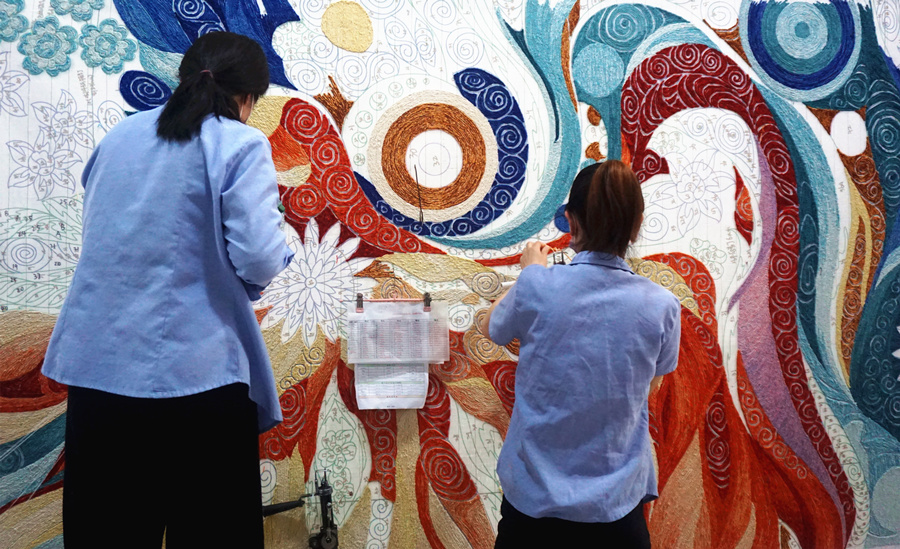
Two workers weave a carpet. [Photo by Bi Nan/chinadaily.com.cn]
The workshop is also committed to innovation. It has collaborated with companies and universities to develop new carpet materials and designs. Additionally, it has participated in setting both domestic and international standards for handmade carpets.
A major breakthrough came through a joint project with Donghua University, which led to the development of China's first fully digital intelligent robot for hand-tufted carpets. This robot follows pre-programmed designs to produce mid- to low-grade tufted carpets with high efficiency, marking a significant step in automating and upgrading the traditional industry.
Yangxin carpet products are sold across major cities in China and exported to countries such as the United States, Japan and Australia. They have been showcased at prestigious venues and events, such as the White House, Trump Tower, the Great Hall of the People, the G20 Summit and the Shanghai World Expo.
To further promote public education, the workshop has established a carpet museum that integrates exhibition, hands-on experiences and learning opportunities. Featuring historical displays, product showcases and interactive areas, the museum demonstrates how traditional carpet-making continues to evolve and integrate into modern life.
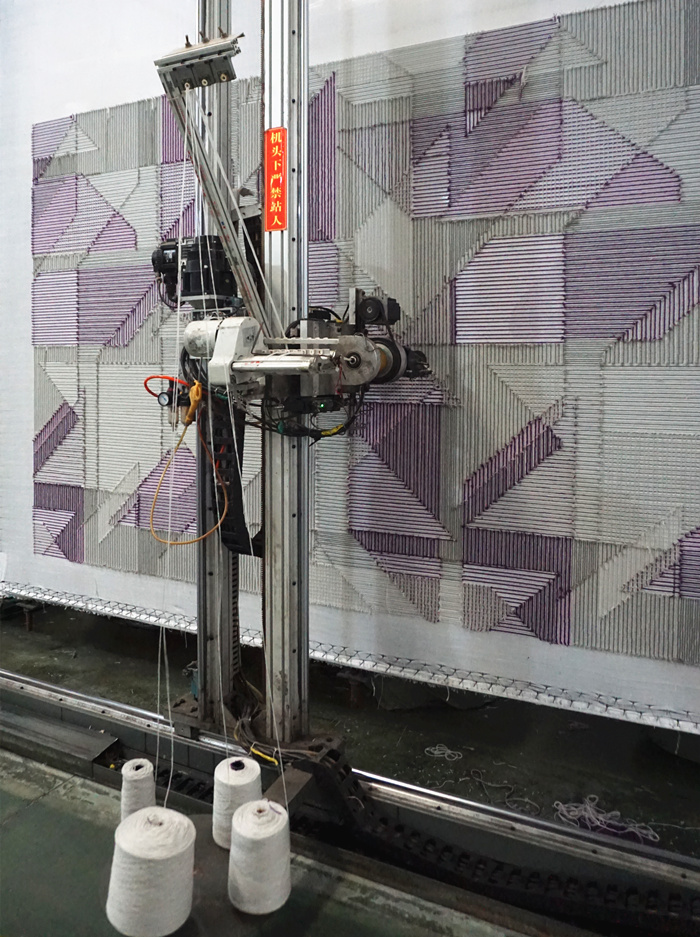
A digital intelligent robot works on a hand-tufted carpet. [Photo by Bi Nan/chinadaily.com.cn]
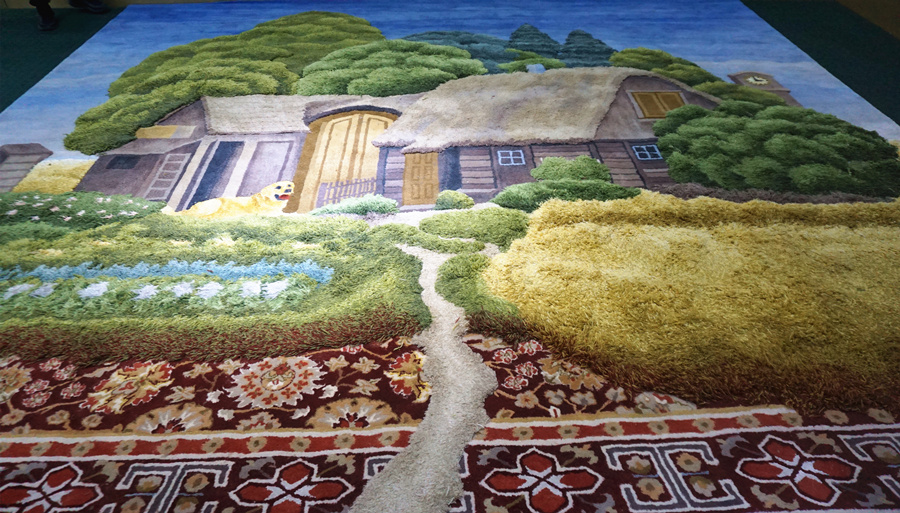
A delicate carpet depicting a rural scene on display at the Yangxin Carpet Museum. [Photo by Bi Nan/chinadaily.com.cn]
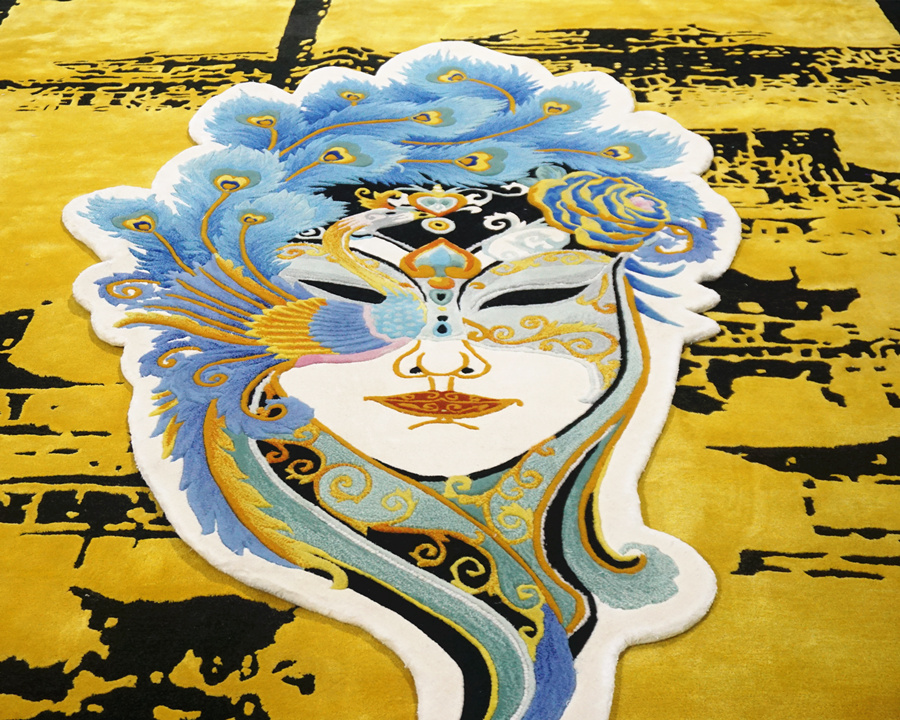
A detailed carpet featuring a traditional opera mask on display at the Yangxin Carpet Museum. [Photo by Bi Nan/chinadaily.com.cn]
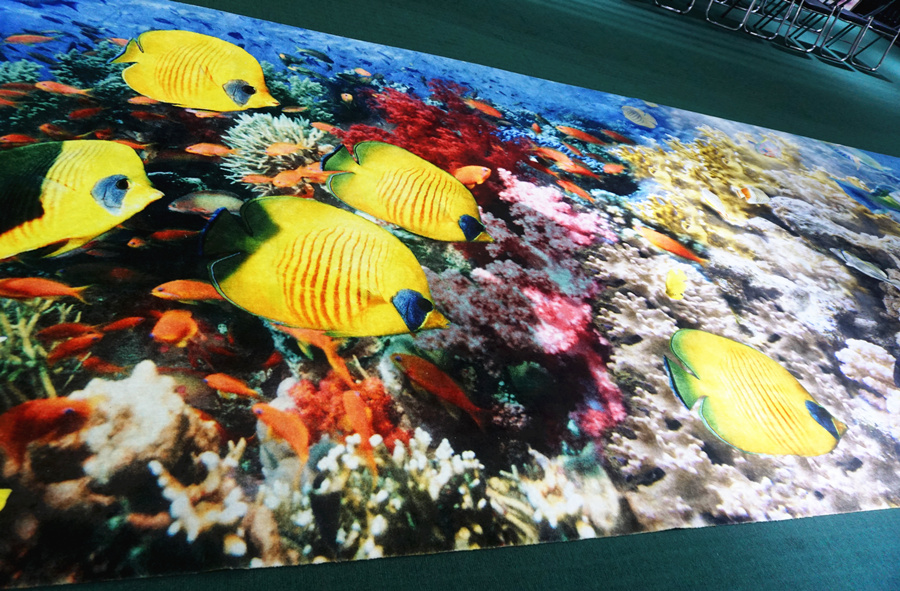
A 3D-printed carpet on display at the Yangxin Carpet Museum. [Photo by Bi Nan/chinadaily.com.cn]
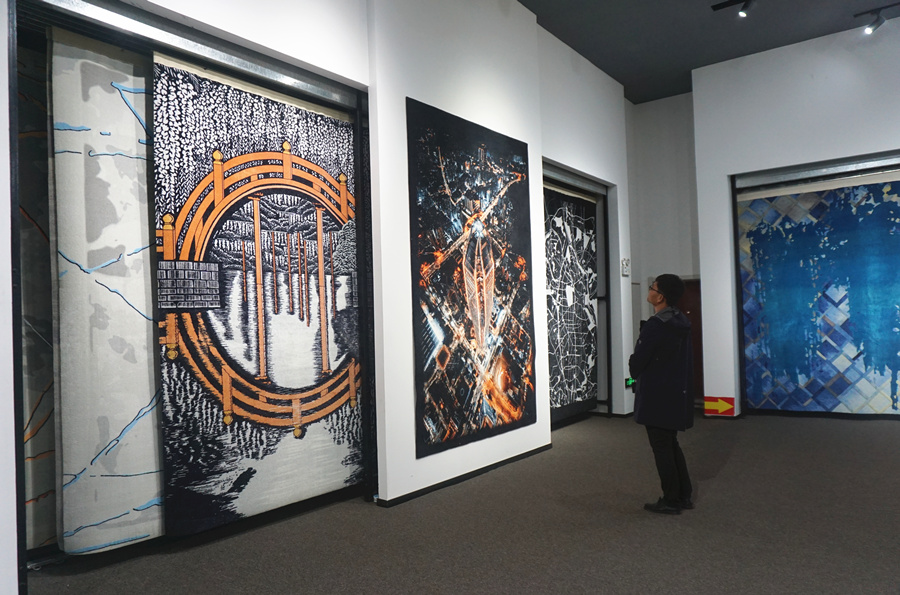
A visitor views a cityscape-themed carpet at the Yangxin Carpet Museum. [Photo by Bi Nan/chinadaily.com.cn]
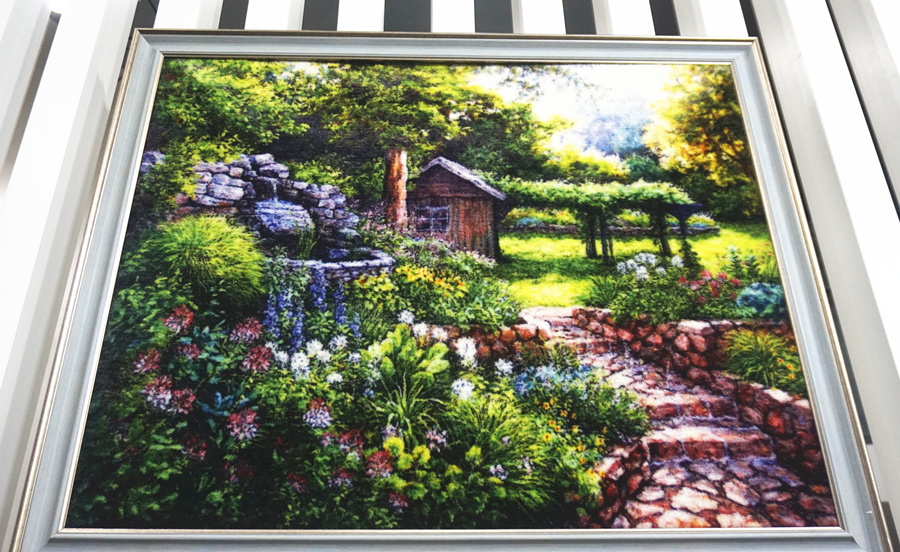
A carpet resembling an oil painting on display at the Yangxin Carpet Museum. [Photo by Bi Nan/chinadaily.com.cn]
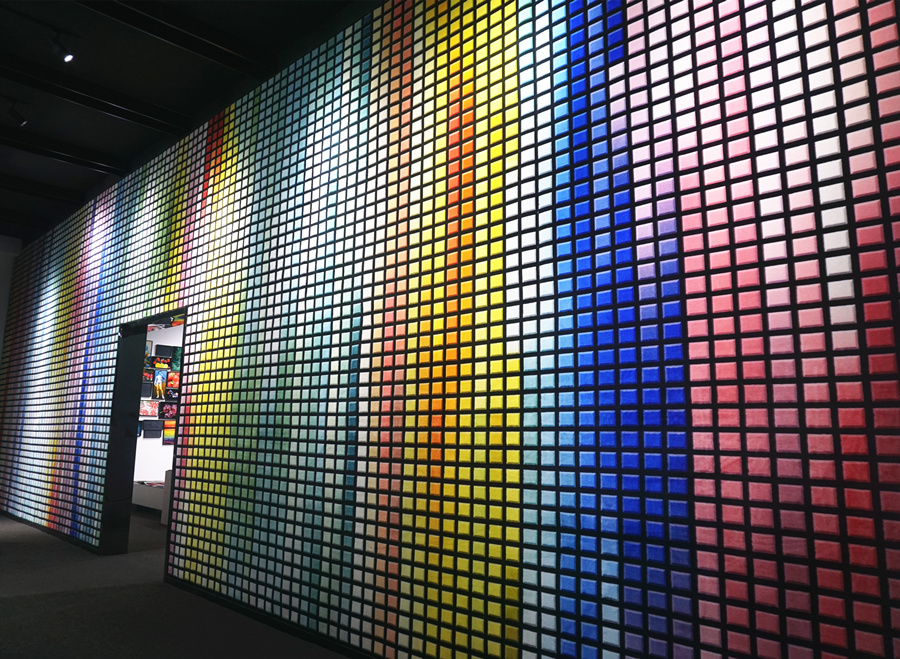
A wall made of colorful carpet pieces at the Yangxin Carpet Museum. [Photo by Bi Nan/chinadaily.com.cn]
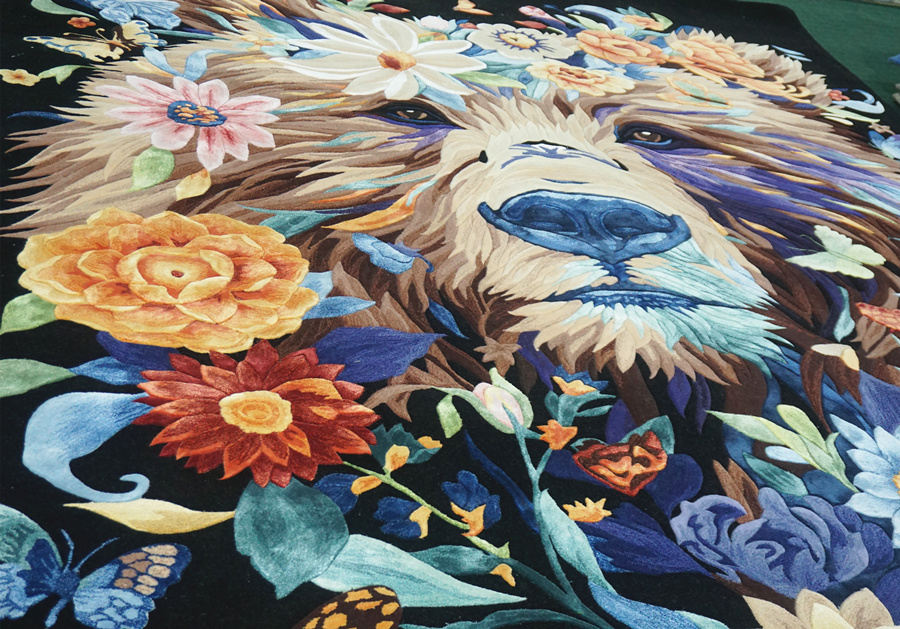
A large carpet featuring an animal on display at the Yangxin Carpet Museum. [Photo by Bi Nan/chinadaily.com.cn]
 Editor:Qiu Xiaochen
Editor:Qiu Xiaochen